
“A neuroendocrine tumour is a particular kind of digestive cancer that requires very specific management.”
How we treat neuroendocrine tumours
Although often situated in an organ of the digestive tract, neuroendocrine tumours behave differently from other digestive cancers and must often be treated in a specific way.
At the very start of pregnancy, the embryo is a cluster of cells which, as they multiply, become progressively differentiated into a number of different organs. When all the organs are formed, traces of this process of differentiation remain. For example, neuroendocrine cells “originate” in the neural crest which will produce different types of cells, including the neurons in the brain and the spinal cord. However, 90% of neuroendocrine cells are found in the digestive tract. Like any other cell, they can mutate and become cancerous, producing neuroendocrine tumours.
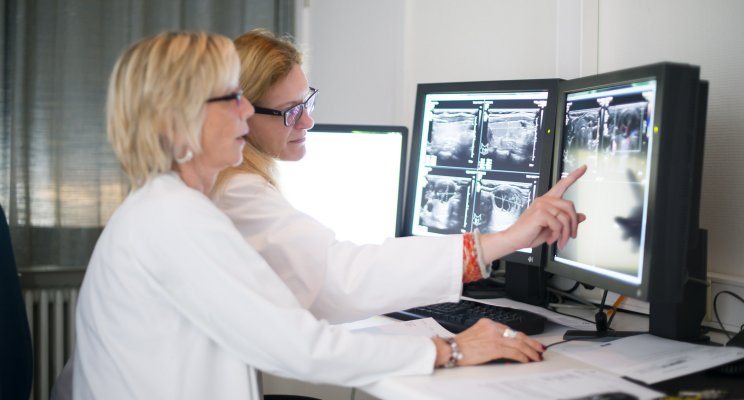
At the Institut Bordet, the Digestive Tumour Multidisciplinary Cancer Care Team (CMO) treats and cares for patients with neuroendocrine tumours.
To begin with, the patient undergoes the same examinations as those for digestive cancer: CT scan, MRI and endoscopy. It is only during laboratory analysis of the biopsy (sample of suspect tissue) that the pathologist is able to discover whether the cancer cells are neuroendocrine cells rather than digestive cells.
PET scans (positron emission tomography) may also be offered as they provide a very useful diagnostic and therapeutic tool.
The therapeutic approach depends on the nature of the neuroendocrine tumour.
- A poorly differentiated neuroendocrine tumour (10% to 15% of cases) is very aggressive and can rapidly metastasise. It is treated with the same types of chemotherapy as those used for digestive cancers.
- A well-differentiated neuroendocrine tumour is known as indolent and progresses slowly. A precise and innovative form of management is then indicated: the “theranostic approach”.
The cancer cells of a well-differentiated neuroendocrine tumour possess somatostatin receptors; somatostatin is an intestinal hormone that exists in synthetic form. At the Institut Bordet, specialists modify this synthetic hormone by fixing radioactive isotopes to it: one molecule (gallium 68) for diagnostic purposes and another molecule (yttrium-90 or lutetium-177) for therapy.
Once administered intravenously to the patient, this substance fixes to the cancer cells by recognising the somatostatin receptor. The patient then has a PET scan in which the “diagnostic” molecule reveals the tumour and helps visualise it.
The role of the “therapeutic” molecule is to irradiate the tumour directly by means of the radioactive isotope fixed to it. This approach, combining therapy with a diagnostic examination, is known as “theranostic”.
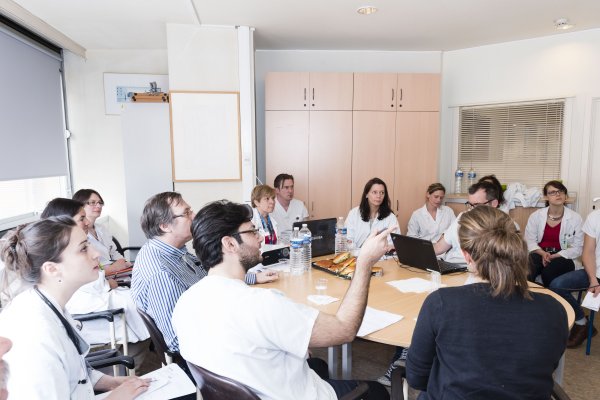
The treatment of neuroendocrine tumours is multidisciplinary. At the Institut Jules Bordet, the Multidisciplinary Cancer Care Team (COM) meets every week to discuss each patient. The team includes gastroenterologists, surgeons, oncologists, pathologists, nuclear medicine specialists, radiotherapists, a cancer psychologist and a cancer care nurse coordinator. If the colorectal cancer causes metastases of the liver, the Digestive COM team works in close collaboration with the Hepatic COM team.
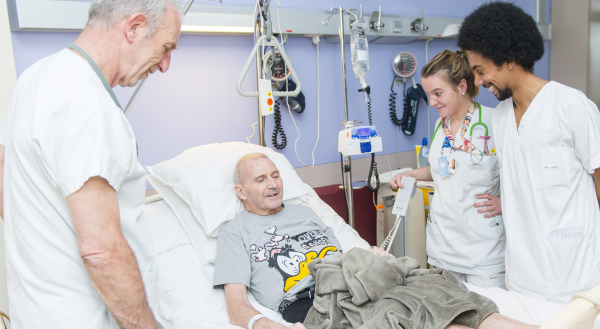
The Institut Jules Bordet's nurses, most of whom specialise in oncology, are committed to caring for patients with thought, humanity and professionalism.
Their role does not stop at care and treatment follow-up; they also meet families, and try to be as available as possible and by patients' sides while being attentive to everything confided in them. The role of education, information and support is an integral part of their profession.
They must have relational, technical and scientific skills in line with the gravity and the complexity of the cancerous pathology. The nurses are particularly attentive to the treatment of pain and other symptoms resulting from cancer treatment.
They also focus on their role as trainers to welcome and supervise students, and give them incentive to practice the profession in the best possible conditions.
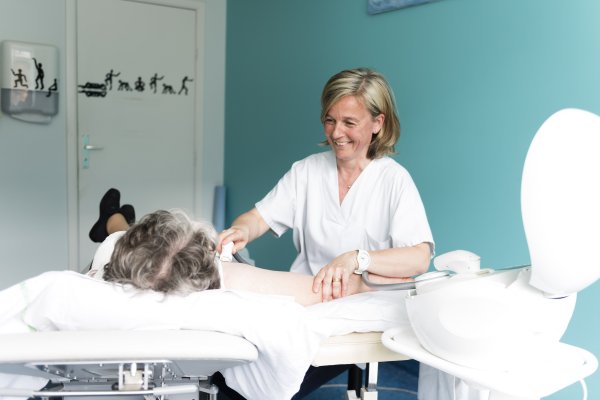
With the medical teams, many other healthcare professionals support the patients. They are dedicated to help patients in managing their illness and treatments, and to promote their wellbeing.
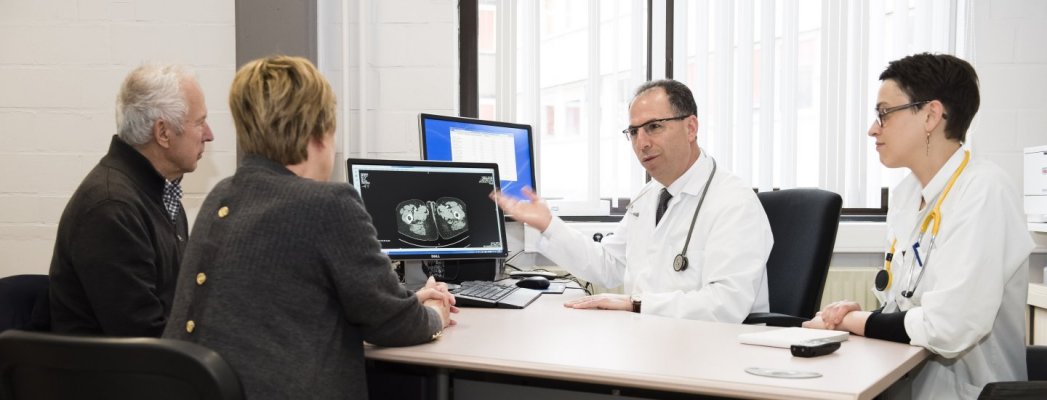
Every year many patients want to request a second medical opinion from our multidisciplinary teams.
Not all the doctors and hospitals will necessarily have the expertise, experience and/or equipment needed for an optimal approach to all types of cancer. At the Jules Bordet Institute this is our job! Requesting a second medical opinion is therefore often useful and reassuring for the patient. This is especially true in the case of rare cancers and/or cancers requiring complex or innovative treatment.
- To request a second opinion for a neuroendocrine tumour: Tel: +32 (0)2 541 34 47
- To find out more about a second opinion, see our page "second opinion"
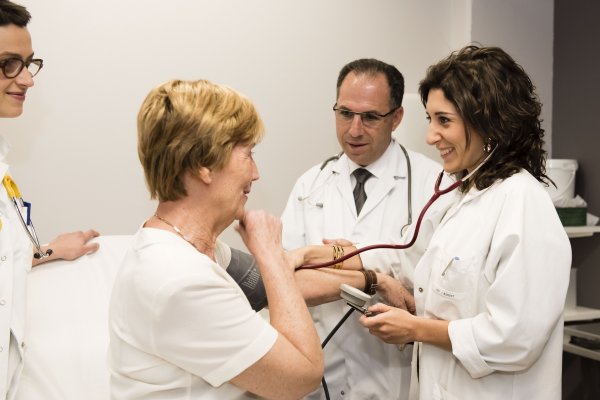
The aims of post-cancer care are multiple:
- to keep an eye on the physical and psychological state of the patient
- to manage any medium or long-term secondary effects of certain treatments
- to detect any recurrence as soon as possible
- to identify any new cancer.
Recurrence means that cancer cells reappear after a period of remission that can vary from a few months to several years. It can also happen that the same patient develops different cancers several years apart. In all these cases, the earlier a recurrence or cancerous disease is detected, the faster a new therapeutic strategy can be offered.